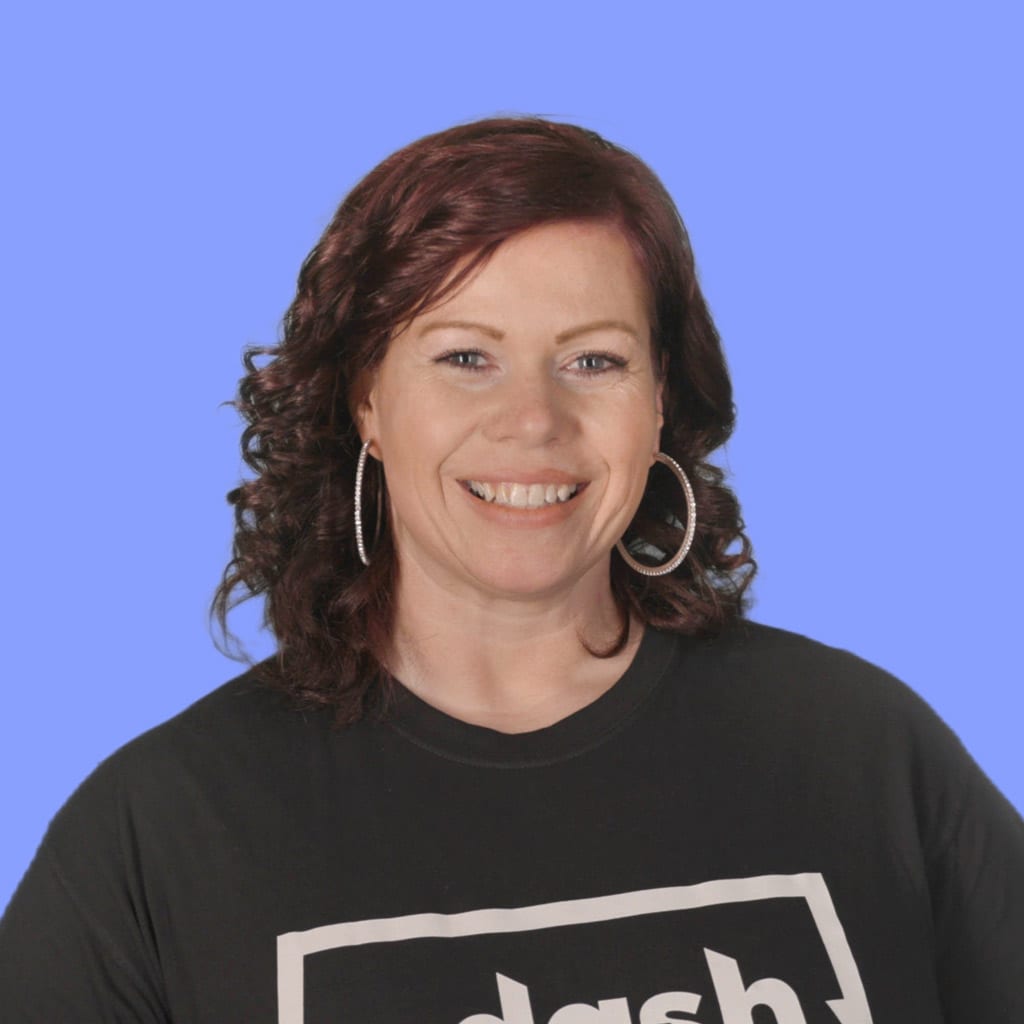Investment Property Loans in the Carolinas
Are you itching to quit your day job and make passive rental income instead? Or maybe you want to flex your creative muscles by flipping a fixer-upper? If this sounds like you, an investment property loan could be a viable financing option.
Simply put, this lending option³ helps borrowers buy an income-generating property. The property could be a downtown duplex destined for renters or a vacation rental. No matter your vision, Dash Home Loans will work with you to secure an investment property loan in North Carolina or South Carolina.
Apply for an investment property loanContents
- What Is an Investment Property Loan?
- Investment Property Loan Eligibility in the Carolinas
- Types of Investment Property Loans Offered in NC & SC
- Estimating Cash Flow for Investment Property Loans
- Pros & Cons of Investment Property Loans
- Work With Dash to Secure an Investment Property Loan
What Is an Investment Property Loan?
An investment property loan can help you purchase an income-generating property. You might intend to rent this property or flip it for a profit. Either way, investment property loans can be used to finance many different types of residences, including:
- Condos
- Apartments
- Manufactured homes
- Single-family homes
- Duplexes and quadplexes
Unfortunately, investment property loans command a higher interest rate. Why? Because when the economy nosedives, borrowers are more likely to default on their rental unit or fixer-upper than their primary residence. To compensate for that risk, lenders jack up the interest rates.
Investment Property Loan Eligibility
in the Carolinas
Higher risk also contributes to stricter lending requirements. Though these expectations vary from lender to lender, an investment property borrower in North Carolina or South Carolina must generally have:
- A down payment of at least 15% to 20% for single-family homes. If you’re trying to purchase a multifamily home, expect to fork out 25% or more.
- A credit score of at least 620. However, remember that a higher credit score typically earns you a lower interest rate.
- A debt-to-income ratio of 36% or less. This metric is calculated by dividing your monthly debt expenses by your pre-tax income.
- Sufficient cash reserves to pay the mortgage for up to six months.
- An estimate of the cost of necessary repairs if you plan on flipping the property. Lenders may also be interested in the after-repair value (ARV), which is the value of the home after renovations have been made.
Worried about pre-qualifying for an investment property loan? Take a breath and give us a shout. We’ll connect you with a Mortgage Coach in North Carolina or South Carolina.
Types of Investment Property Loans Offered in NC & SC
Investment property loans are like burgers – they come in all different shapes and sizes with an assortment of accouterments. And though deciding between financing options is a bit harder than deciding between gouda or cheddar, Dash is here to help investors in North Carolina and South Carolina find a mortgage loan that suits their tastes.

Take a look at the investment property loans we offer, then get in touch. When you reach out, we’ll connect you with a Mortgage Coach who can walk you through each step of the lending process.
- Conventional Loan: The traditional lending option with relatively low interest rates and low down payment options.
- FHA Multifamily Loan: A government-backed loan that’s great for investors with less-than-perfect credit.
- VA Multifamily Loan: A no-money-down loan available to eligible veterans⁵.
- Portfolio Loan: A private lending option that bundles several single or multifamily mortgages together.
- Blanket Loan: Designed for investors interested in financing several properties using one single loan.
- HELOC Loan: Allows a borrower to pull equity out of an existing property to be used as a down payment for another.
- Hard Money Loan: Perfect for investors looking to renovate a property and then sell it for a profit.
Estimating Cash Flow for Investment Property Loans
When you apply for an investment property loan for a rental property, the lender may also expect to see a cash flow forecast. Cash forecasting is a way of calculating your anticipated income and expenses.
Your gross cash flow includes all the money generated by your rental property. It also accounts for vacancies. Assuming a 6% vacancy rate for a property that generates $20,000 per year, for example, you would lose $1,200 per year ($20,000 x .06 = $1,200). With that being said, you can expect your gross cash flow to be $18,800.
Your cash flow forecast would also consider gross operating expenses, such as:
- Insurance
- Property taxes
- Capital expenditures
- Maintenance costs
- Leasing fees
- Property management fees
Pros & Cons of Investment Property Loans for NC & SC Homeowners
Let’s start with the positives. An investment property loan is a convenient financing tool that allows a savvy borrower to catalyze their net worth. Unlike stocks, which are fairly volatile, a two-bedroom cottage is a tangible investment that appreciates over time. That quaint home can also offer passive rental income or, with some sweat-equity, be flipped to generate a large lump sum.
But investment property loans aren’t all sunshine and shiplap. These lending instruments are hard to come by. Without a superb credit score, big down payment, and low debt-to-income ratio, a lender may not give you the time of day. If you do get approved⁷, expect your interest rate to be 0.25% to 0.75% higher than that of a primary residence mortgage.
Work With Dash to Secure an Investment Property Loan in the Carolinas
Are you feeling a little overwhelmed? We get it. Diving headfirst into an investment property loan can be unnerving, especially if you’re juggling other mortgages. You may worry that you won’t qualify or, if you do, that you won’t secure favorable terms. While these are valid concerns, we’ve got your back.
If you couldn’t already tell, we do things differently at Dash Home Loans. For starters, we’ve reimagined the entire lending process by firing faceless loan processors and keeping everything in-house. That means you’ll get approved really friggin’ fast. Plus, our Mortgage Coaches aren’t stuffy loan officers who wear ties and speak legalese – they’re real people who’ll walk you through the complicated intricacies of mortgage lending.
Get started with our NC and SC loan professionals at Dash by calling 704-286-9328 today!

Helping Homeowners Throughout the Carolinas
Apply for an Investment Property Loan With Dash Today
Do you have some burning questions about investment property loans in North Carolina or South Carolina? Reach out today to speak with one of our friendly Mortgage Coaches. They’ll take the time to discuss every step of the lending process.
Ready to get started? Sweet! Click “Apply now” below to start your application.
Frequently Asked Questions
NC & SC Investment Property
Loan FAQs
Can I put less than 20% down on an investment property loan?
Probably not. Though down payment requirements depend on your specific lender, almost all investment property mortgages require a down payment of at least 20%. Though the Federal National Mortgage Association (A.K.A. Fannie Mae) requires just 15% down on single-family investment properties, this jumps to 25% for multifamily properties.
Can you get a 30-year loan on an investment property?
Definitely. In fact, 30-year investment property mortgages are very common. Terms of 10, 15, 20, or 25 years are also available. A shorter loan term may afford you a lower interest rate; however, you will have a higher monthly payment.
Are interest rates for investment property loans higher?
Yes. Interest rates for investment property mortgages tend to be 0.25% to 0.75% higher than those of primary residence mortgages. Why? Because when push comes to shove, investors are more likely to default on their rental property or fixer-upper than their own house. To accommodate this risk, lenders up the interest rate.
Is it hard to get a loan for an investment property?
It can be. Lenders have pretty stringent requirements when it comes to investment property mortgages. Generally speaking, you’ll want to have considerable cash reserves for the down payment, a decent credit score, and a low debt-to-income ratio to secure a loan with favorable terms.
Legal information
¹ Dash Loan Closing Guarantee Disclaimer: Guarantee is based on loan closing; restrictions apply.
² No-Down-Payment Disclaimer: Closing costs and fees may still apply.
³ Lending Disclaimer: Mortgage rates are subject to change and are subject to borrower(s) qualification. APR rate(s) quoted is/are based upon a (loan amount), (loan term, including whether fixed or ARM) year.
⁴ Refinancing Disclaimer: When it comes to refinancing your home loan, you can generally reduce your monthly payment amount. However, your total finance charges may be greater over the life of your loan. Your PRMI loan professional will provide you with a comprehensive refinance comparison analysis to determine your total life loan savings.
⁵ VA Home Loan Disclaimer: VA home loan purchases have options for 0% down payment, no private mortgage insurance requirements, and competitive interest rates with specific qualification requirements. VA interest rate reduction loans (IRRRL) are only for veterans who currently have a VA loan – current loan rate restrictions apply, and limits to recoupment of costs and fees apply. VA cash-out refinances are available for veterans with or without current VA loans. Policies and guidelines may vary and are subject to the individual borrower(s) qualification. Program and lender overlays apply.
⁶ Down Payment Assistance Disclaimer: First lien interest rates may be higher when using a DPA second.
⁷ Pre-Approval Disclaimer: Pre-approvals are given to clients who have met qualifying approval criteria and specific loan requirements at the time of applications. Results may vary.
General Disclaimer: The content on this page has not been approved, reviewed, sponsored, or endorsed by any department or government agency.
NMLS® Consumer Access℠: https://nmlsconsumeraccess.org/
North Carolina Mortgage Branch License: L-112833-200
South Carolina-BFI Branch Mortgage Lender/Service License: MLB-1439905, MLB-1439905 OTN #2